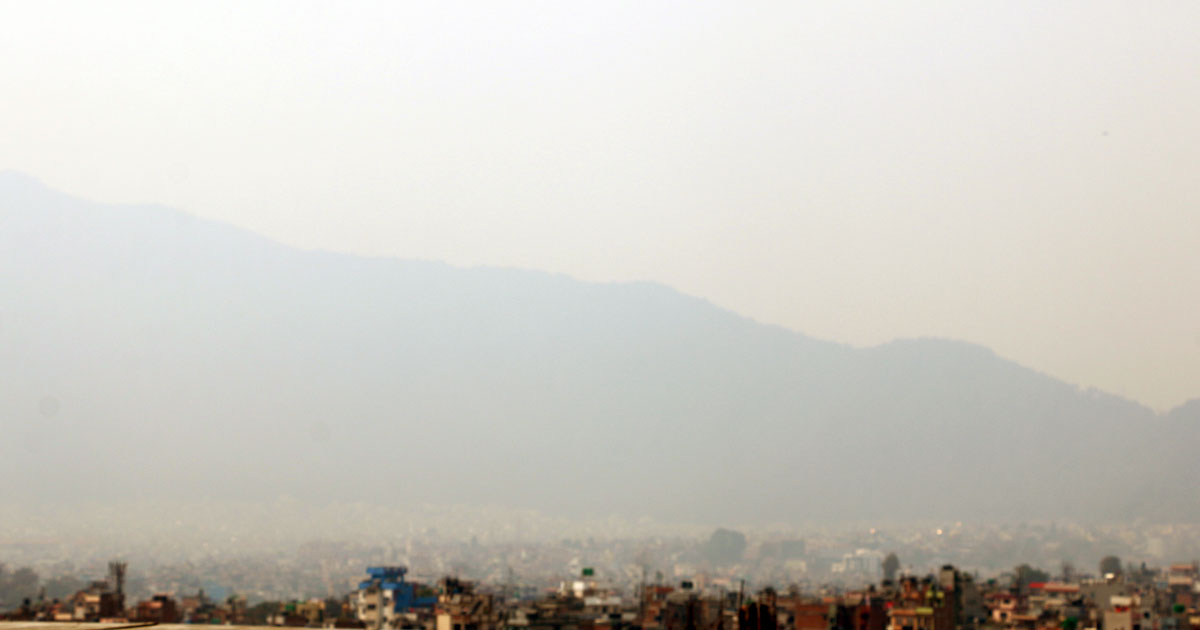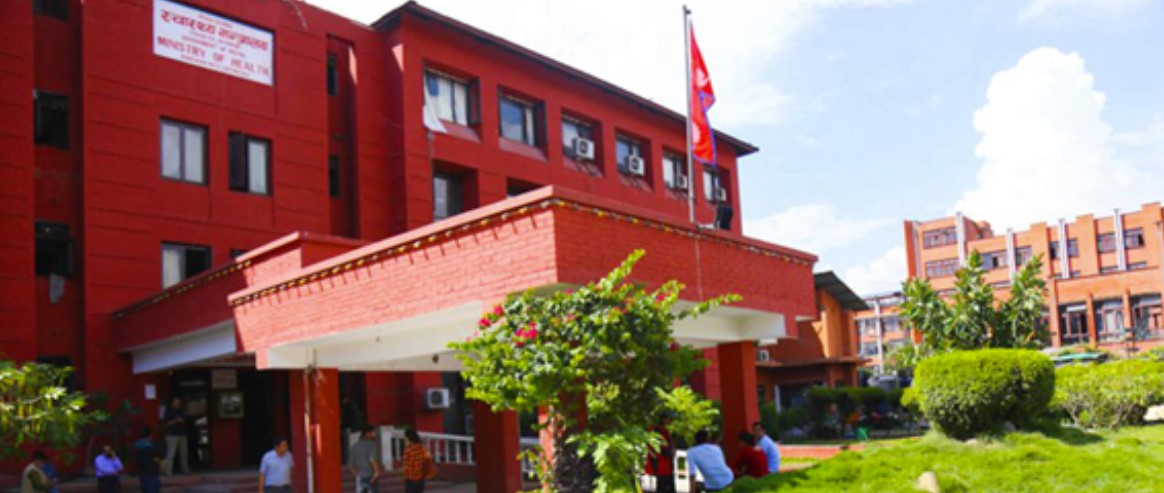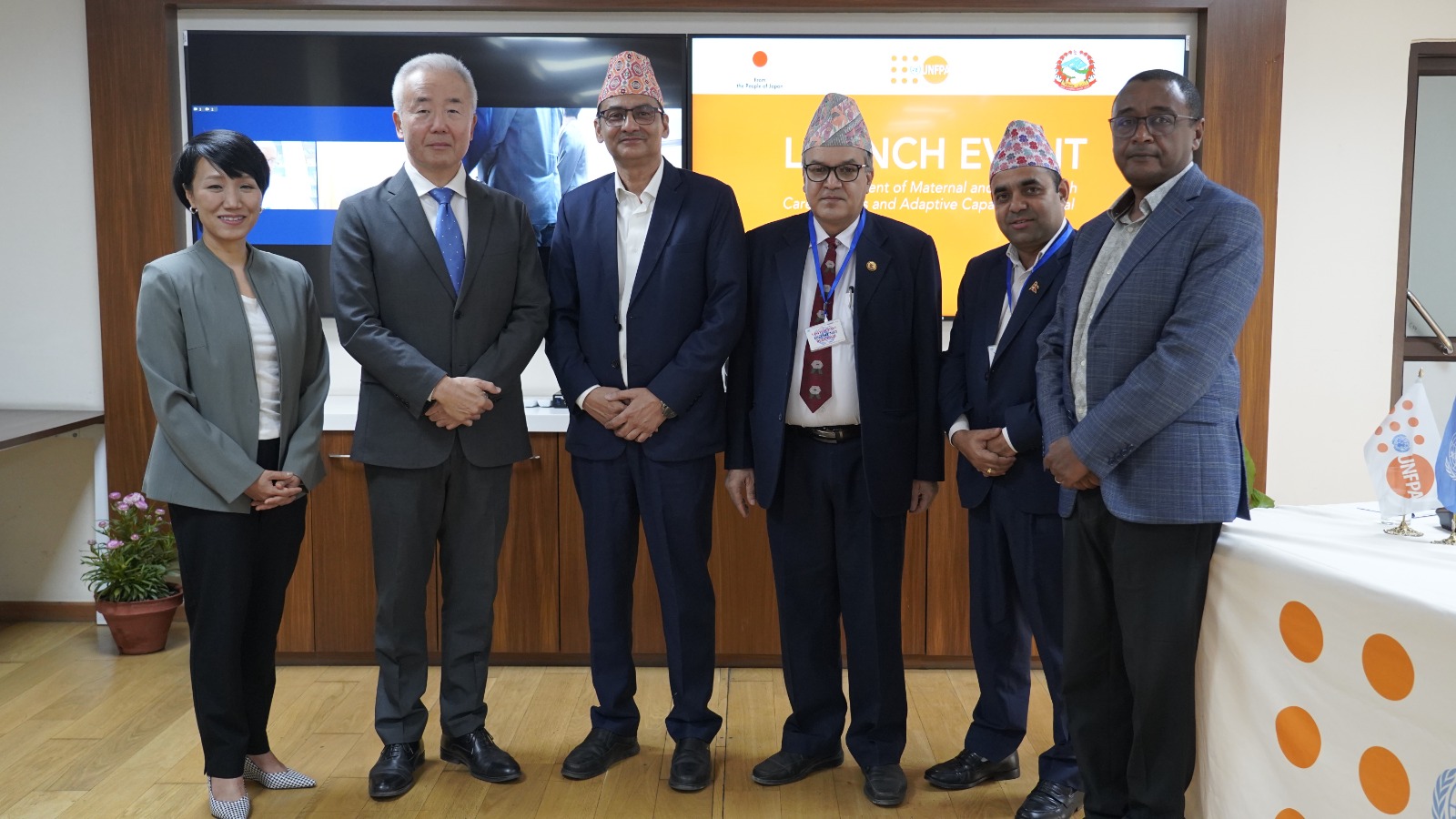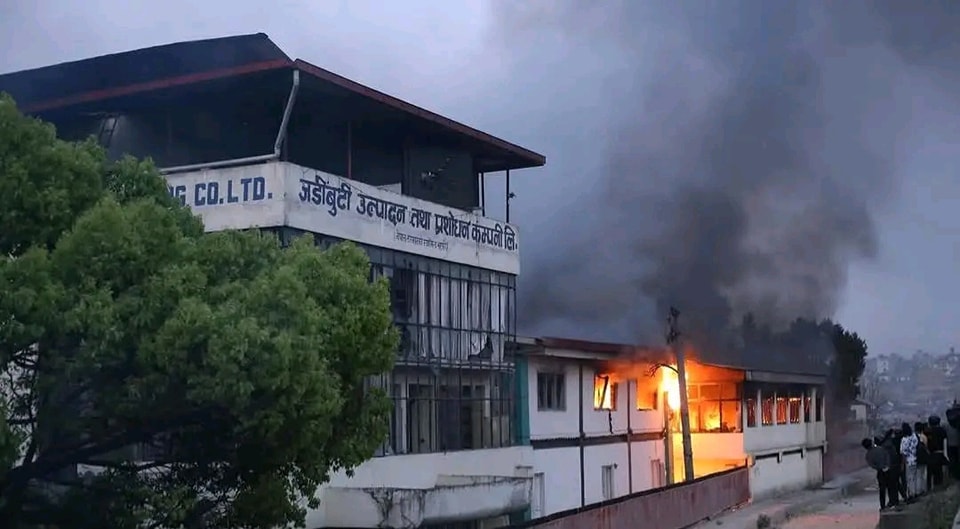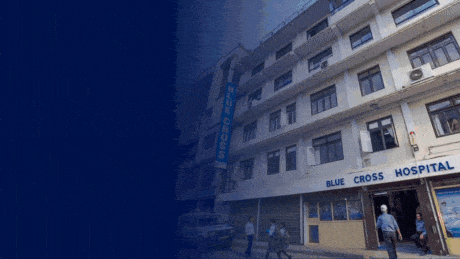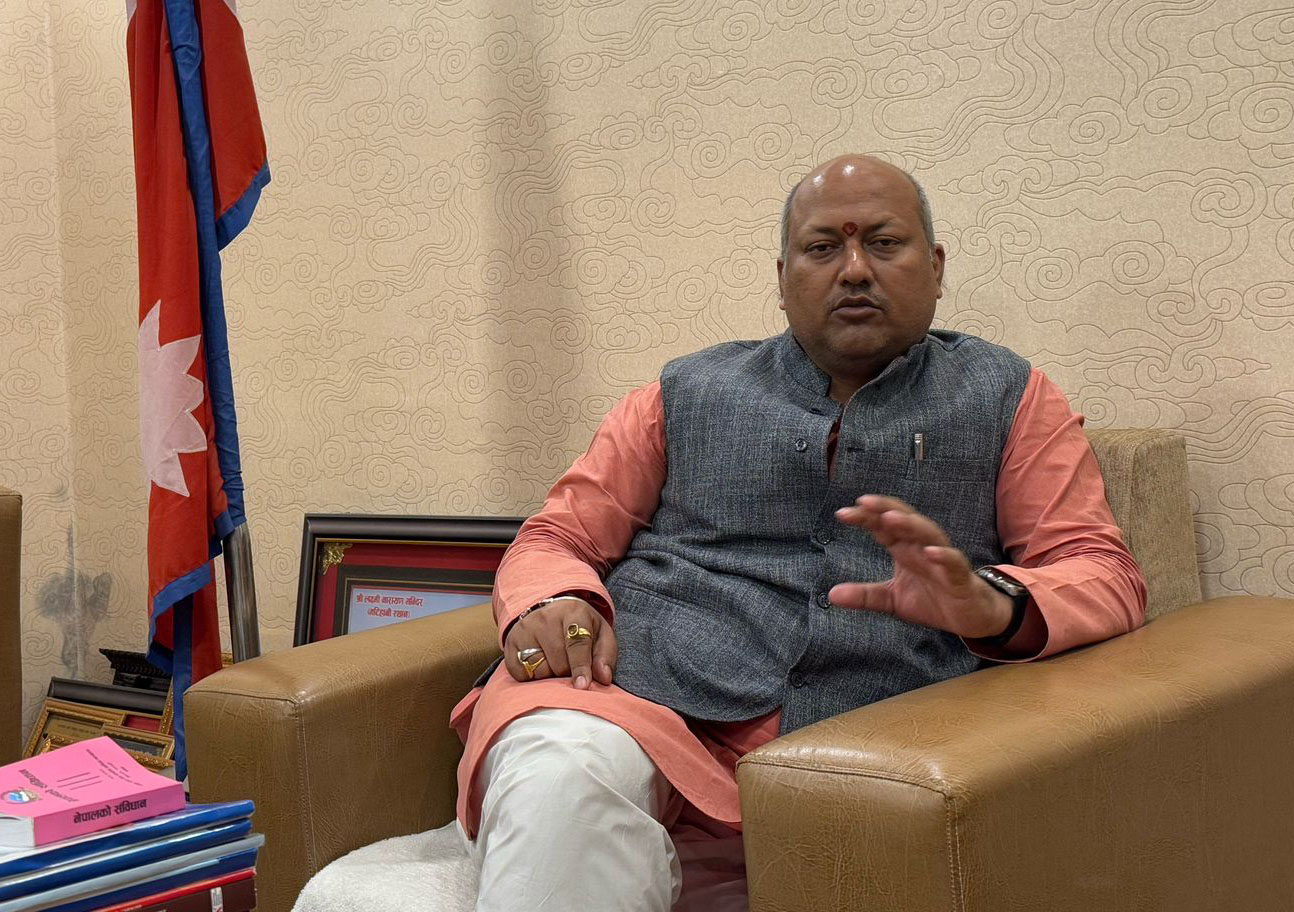
Madhesh Province Chief Minister Satish Kumar Singh has been conducting inspections of hospitals under the province. Some illegally operating hospitals have been ordered to shut down, while others have been given time to complete necessary procedures. Out of the 120 hospitals inspected, 75 have been closed, 29 have been issued renewal notices, and only 16 were found to be fully compliant with standards.
During these inspections, he observed numerous issues in the province’s healthcare system. Two months ago, Pabita Yadav underwent surgery at Muskan Hospital in Janakpur, where she was anesthetized but has not regained consciousness since. Following this incident, Chief Minister Singh has been focusing on hospital inspections.
Interview with Chief Minister Singh by Dhan Bahadur Khadka–
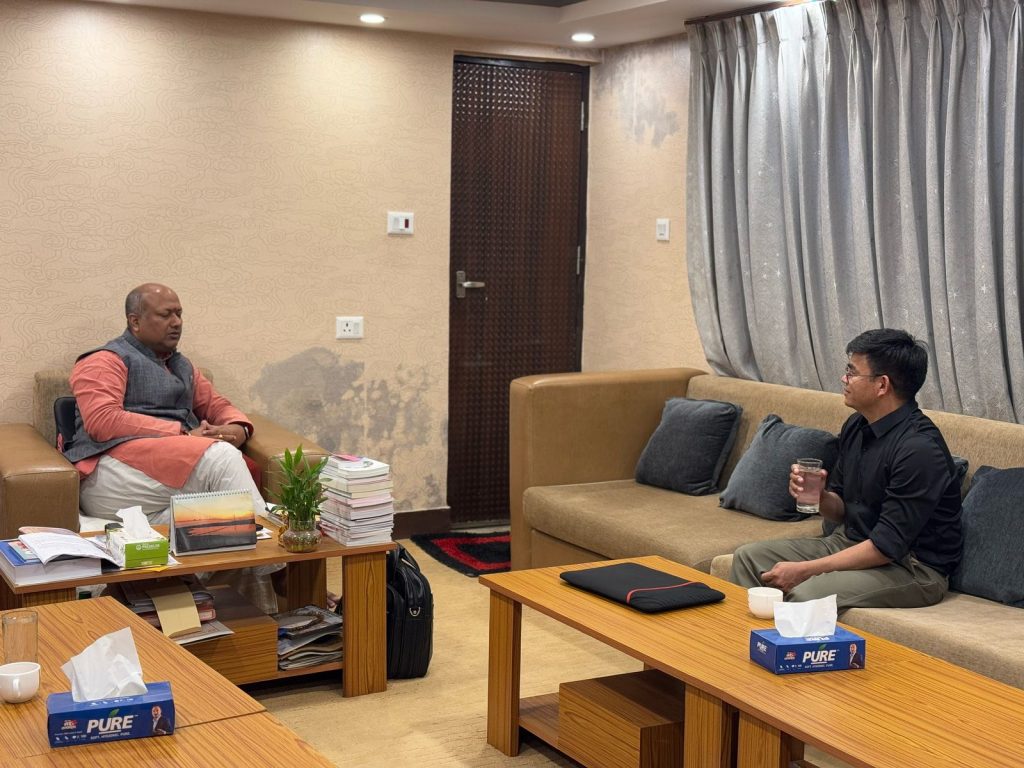
What inspired you to scrutinize Madhesh’s healthcare system?
Before prioritizing any sector, a significant event often serves as a turning point. On the 15th of Poush, a woman underwent surgery at Muskan Hospital and has remained unconscious ever since. She is still on a ventilator in Kathmandu’s KMC Hospital. The day I received information about Muskan Hospital, I visited the facility at night but found no one there.
Even after waiting for half an hour, no one showed up. I left but instructed someone to secure the hospital’s documents. Soon after, the hospital’s operators approached me, trying to use their influence. I stood firm in my decision not to allow hospitals to operate without fulfilling legal requirements. We sealed the hospital, and for the past two months, we have retained the keys. This incident made me realize the need to inspect other private hospitals, and since then, I have been actively engaged in this work.
Before this incident, were you aware of these issues in Madhesh’s healthcare system?
We were already concerned about the healthcare sector. I had been continuously inspecting government hospitals even before this incident. These hospitals struggle to provide adequate services due to a lack of resources. The constitution mandates free basic healthcare services, but the shortage of resources makes implementation difficult.
Even with available resources, government hospitals faced issues like absenteeism among doctors, a lack of commitment, and employees leaving after just signing in. During my inspections, I checked whether duty charts were maintained and if the listed staff were actually present. These inspections instilled a sense of accountability among employees. Some were even caught lying, and disciplinary action was taken against them.
While inspecting government hospitals, we also received reports of private hospitals exploiting the public, operating without registration, and engaging in medical negligence. We were already planning to address these issues when the Muskan Hospital incident occurred.
What other problems did you find in unregistered hospitals?
People often ask why we didn’t take strict action against unregistered hospitals. I believe creating fear among wrongdoers is also a form of punishment. When individuals or institutions violate rules, they should feel a sense of accountability.
If a hospital is found operating without proper registration, we immediately halt its operations. If a hospital is registered but has not renewed its license, we give them a two-month period for renewal. Failure to do so results in a complete shutdown. Hospitals must meet several criteria, including a 24-hour on-duty medical officer in the emergency ward, availability of essential medicines, and the presence of an anesthesiologist for surgeries.
During inspections, we found hospitals operating in extremely cramped spaces, where even a stretcher could not be maneuvered properly. Some hospitals had no clear entrance to the emergency ward. Many individuals working as doctors had not even passed the Medical Council exam. Shockingly, some hospitals were run by ambulance drivers who previously transported patients to other hospitals for commission but had now opened their own facilities. Similarly, pharmacists, health assistants, lab technicians, and even medical students had opened hospitals without proper authorization.
Only a few hospitals met operational standards, and many clinics and dental hospitals were also found to be non-compliant. The healthcare situation in Madhesh is critically flawed.
Why has the situation worsened to this extent? Was it due to a lack of regular inspections?
We are now actively inspecting and working to bring order to this chaos. Some have questioned why the Chief Minister himself is leading these inspections instead of the Health Minister or other officials. But this is not a recent problem—it has persisted for years. Without taking direct action, we saw no other way to bring change.
After the implementation of federalism, the responsibility for granting operational approval to health institutions became unclear. As a result, unregistered health facilities started mushrooming everywhere.
If I had not personally led the inspection, it would have lasted only about ten days. It would not have been sustained like this. Since I belong to a new political party, I am not under political pressure, which has allowed me to continue these inspections without interference.
Three days after we started inspecting hospitals, there was a protest in Janakpur, organized by the owners of the hospitals under investigation. They tried to exert pressure, but I had the main instigators arrested. They made multiple calls, trying to use their influence, but I refused to listen. Eventually, they admitted their mistakes and apologized.
Hospital operators often have strong political connections. Some may even be close to your party. Have you faced pressure from within your circle?
Some people have called me, claiming that certain hospital operators are my relatives and requesting me to exempt them. However, I have ignored such requests. This work needed to be done, and I took the initiative. Whether or not this effort continues regularly in the future remains uncertain, but I am determined to set a precedent.
Even future chief ministers will be compelled to continue these inspections because people will hold them accountable.
Many illegally operated hospitals charge fees comparable to well-known institutions. In some cases, they have even influenced local governments financially to continue operating. Instead of merely shutting down hospitals, our goal is to ensure that they operate according to established standards.
What steps is your government taking to strengthen government health institutions?
It is not immediately possible to expand the physical infrastructure of hospitals operating under the province. This process would take at least 2-3 years. The number will increase to 20 percent after the 10 percent additional bed service begins. Hospitals designed to handle 200 emergency cases often receive 400 patients. There is a shortage of healthcare workers relative to hospital bed capacity. Even if we want to provide facilities in government hospitals similar to private ones, limited resources make it impossible. In developed countries, 10-20% of the budget is allocated to the health sector, whereas Nepal allocates significantly less. Therefore, despite our intentions, it is challenging to make public healthcare facilities well-equipped. The federal government must take this issue seriously.
Dhan Bahadur Khadka
Published: March 27, 2025


